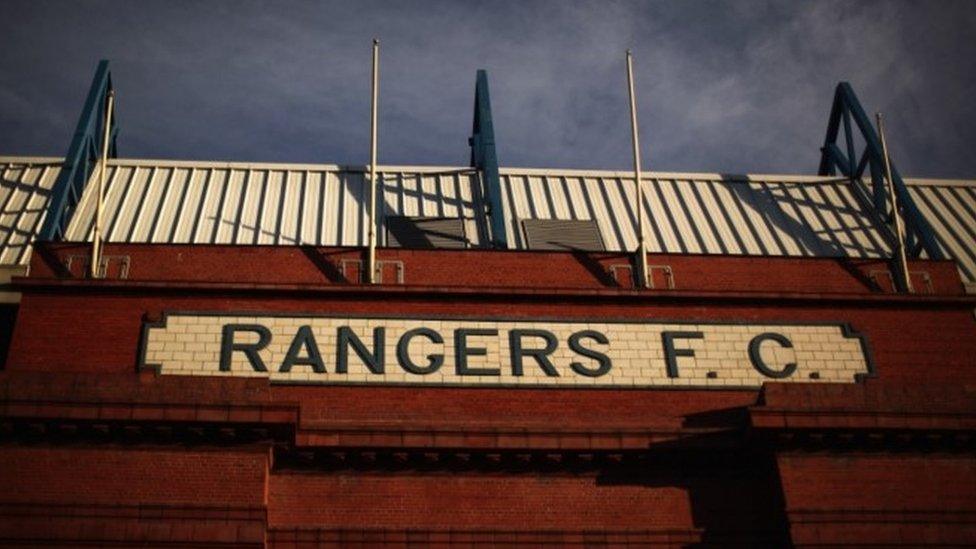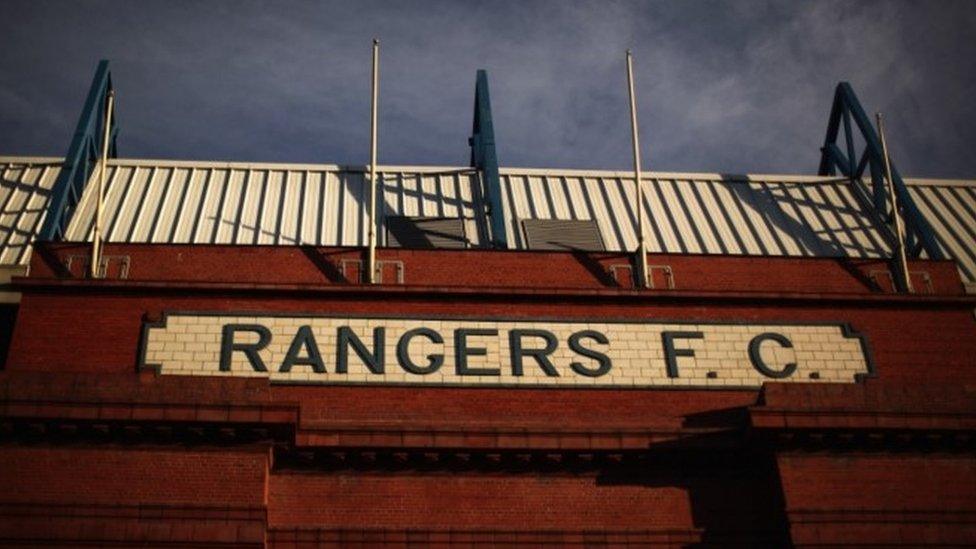Rangers win 802 Works Wi-Fi cash ring-fence case
- Published

Rangers have won a legal battle to have a warrant lifted that ring-fenced £300,000 of the club's cash amid an on-going dispute about an unpaid bill.
802 Works Ltd had an arrestment warrant granted by a sheriff on 31 December.
The firm claimed Rangers has not paid a bill for a Wi-Fi system installed at Ibrox and wanted the cash frozen to ensure payment if the club goes bust.
A sheriff lifted the arrestment after being satisfied there was no immediate risk of Rangers that happening.
At Glasgow Sheriff Court, lawyers for 802 Works said the club still owed £300,000 from the £900,000 bill for the Wi-Fi system that was installed in January 2014.
Annual losses
The court was told that Rangers "over a considerable period", had been operating at a loss of £7.5m per year.
The club had argued that there was no threat of insolvency and it had recently repaid a £5m loan from Sports Direct.
It also claimed there had been a breach of contract as only 10,000 users could access the Wi-Fi in the stadium, which holds 50,000 people.
802 Works denied the contract with Rangers had ever specified coverage for 50,000 people.
After hearing submissions from both sides, Sheriff Ian Miller recalled the warrant and the arrestment of money and said he placed "particular weight" on the existence of a £6.5m loan given to the club and the profit and loss account.
'Club affection'
The figures from July to December 2015 were lodged during the hearing, showing an improvement in the club's accounts.
The sheriff said that document "did change the whole focus of the hearing".
During submissions earlier in the week counsel for Rangers, Christopher Wilson, said that those investing in the club "would not stand by and let the club go under".
Delivering his judgment, sheriff Miller said: "It is right to take in to account this fact of the particular nature of the business, its present situation and willingness of those with deep pockets and affection for the club to keep it in business, at least for the foreseeable future."
- Published12 January 2016
